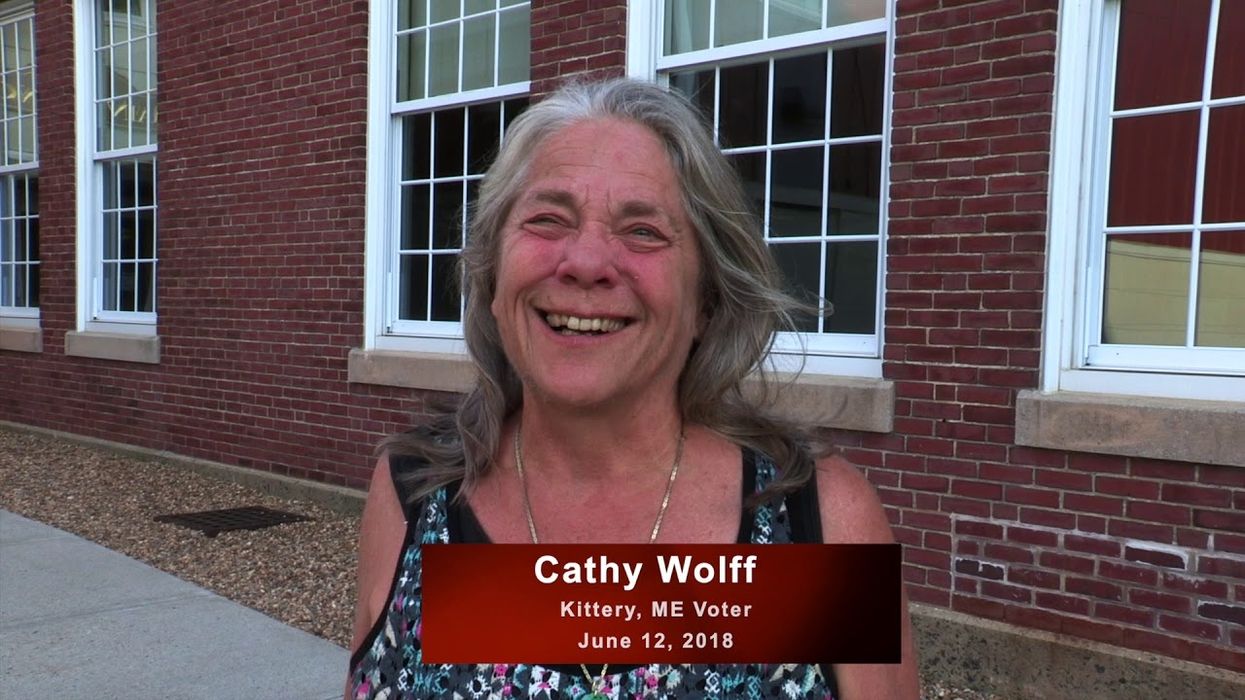After interviewing Maine voters in 2018 about their ranked-choice voting experiences, I was left with a firm understanding of what was required for voters to embrace this reform. Nearly every voter who expressed enthusiasm for this alternative election method said they remembered it was painful living for most of this decade with a governor, Republican Paul LePage, who was elected to his two terms with 38 percent and the 48 percent of the votes.
That kind of pain demands relief, particularly given Maine's uniquely strong political culture of supporting third-party candidates. But what other voters in the United States experience similar political pain when voting in general elections? None that I can think of.
So, when the RCV movement came to my home state of Massachusetts, that was the bar that had to be cleared: Convincing voters to solve a problem — the lack of majority winners in multi-candidate general elections — that they don't currently have.
That's a very high bar. I did not attempt to address this when I produced an installment of my documentary series on ranked elections, featuring Maine voters who supported RCV. Ballot questions are simple "Yes" or "No" choices. People who both understand and embrace the rationale for a proposed change vote yes. But if they have any doubts — any at all — they generally play it safe and vote no.
Clearly the RCV issue did not clear that basic but essential hurdle in the minds of Massachusetts voters. Last week they voted 55 percent to 45 percent against switching to ranked elections for all primaries and general elections for Congress, governor and other statewide executive positions, the Legislature and some countywide posts.
Without voters having a visceral understanding of why they need to support RCV, the way Maine voters did, the for and against arguments cancel each other out and "no" becomes the default choice. I experienced that firsthand many times in direct and social media conversations with friends and acquaintances. One exchange stands out:
"From what I understand" a friend said, RCV would polarize the country further by allowing the most extreme candidates in a partisan primary to win, setting up a general election without any moderate candidates. Ironically, he cited the very same congressional election this year that RCV advocates pointed to, for different reasons: The Democratic primary for an open House seat in Massachusetts this summer, won by moderate Jake Auchincloss with just 23 percent in a nine-person field where the other top candidates were far to his left.
Had RCV been in place, my friend asserted, the moderate would have had no chance to be nominated.
I was caught off guard hearing two advantages I see in RCV — winning candidates always have a majority of support, and consensus-oriented campaign strategies will work best — turned upside down. It is a sign of our times that two rational people can look at the same set of facts and reach different conclusions.
After batting down some of the usual RCV misperceptions, like the unfairness of some people getting multiple votes and the "it's too complicated" complaint, I had to tackle my friend's suspicions of something fishy about the first application of RCV in Maine resulting in a Republican congressman's defeat in 2018 — reenforcing, for him, the false narrative that RCV is a liberal Trojan horse to gain power.
I pointed out that if neighboring New Hampshire had used a ranking system in 2016, Republican Kelly Ayotte would have been reelected to the Senate because a Libertarian acted as the spoiler, receiving more votes than Ayotte's margin of defeat. The same thing happened in my friend's congressional district two years before: The Republican challenger he supported lost to a vulnerable incumbent Democrat because a Libertarian (again) acted as the spoiler for the Republican. (This raises a puzzling question as to why so many Republicans oppose RCV based on one election in Maine. There is strong evidence they would benefit from an RCV system limiting the Libertarian spoiler phenomenon.)
Then I appealed to his pain, a pain that intuitively exists with many voters on both left and right. I reminded him of our "common ground" frustrations with the current political environment: the power of the partisan duopoly, and the silencing of many voices in campaigns, sustained by the current binary voting system.
I hit a nerve and explained how ranked elections would remedy this.
"Well now that you put it that way" he said, he felt he could support the idea. I assume he still voted no on the Massachusetts ballot question, because he was not getting any reinforcing messages about the pain RCV alleviates for him. Instead he got a cacophony of voices, giving less weight to paid advertising and more to the views of a popular governor and several influencers who opposed the measure.
So far, the post-mortem on why the proposal failed focuses on the impact of the coronavirus pandemic on grassroots canvassing and how it created anxiety in voters, making them less prone to disturb the status quo. While Covid-19 impacted the election, it cannot be blamed for a 10-point blowout in which the winners spent $10,000 and the losers $10 million.
The problem was much deeper. The messaging did not resonate. At best, the message was that ranked elections are "neat to have," not that it could solve problems that afflict voters. As a passionate supporter of RCV, it pains me to write that. But the numbers don't lie.
In a time of massive voter dissatisfaction with our political system — much of it related to the two-party stranglehold — the democracy reform movement could not convince voters to adopt reform. This requires a fundamental rethinking of the messaging strategy.



















Marco Rubio is the only adult left in the room